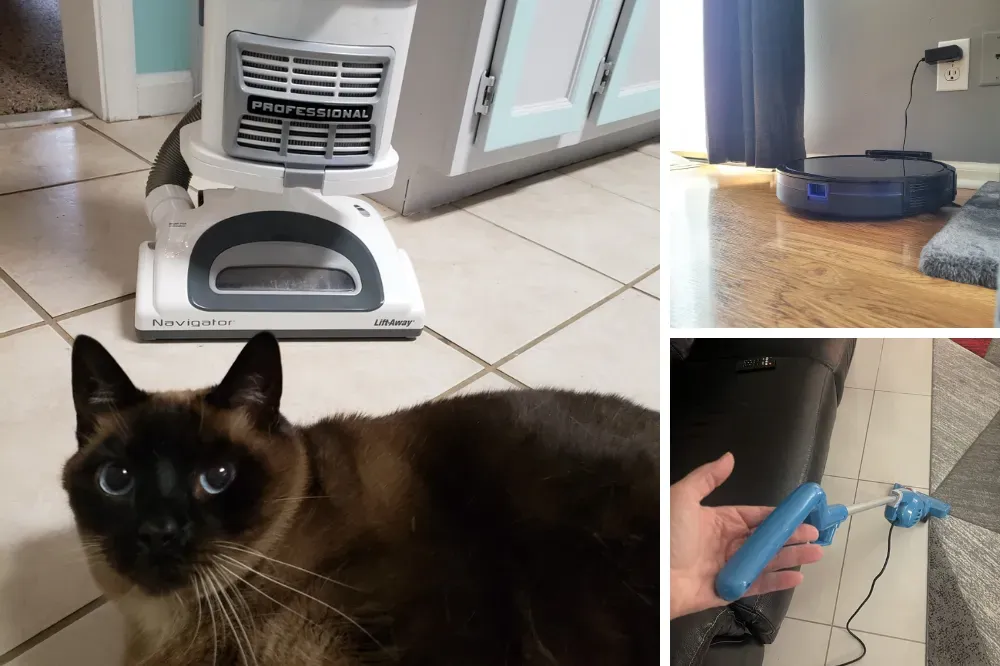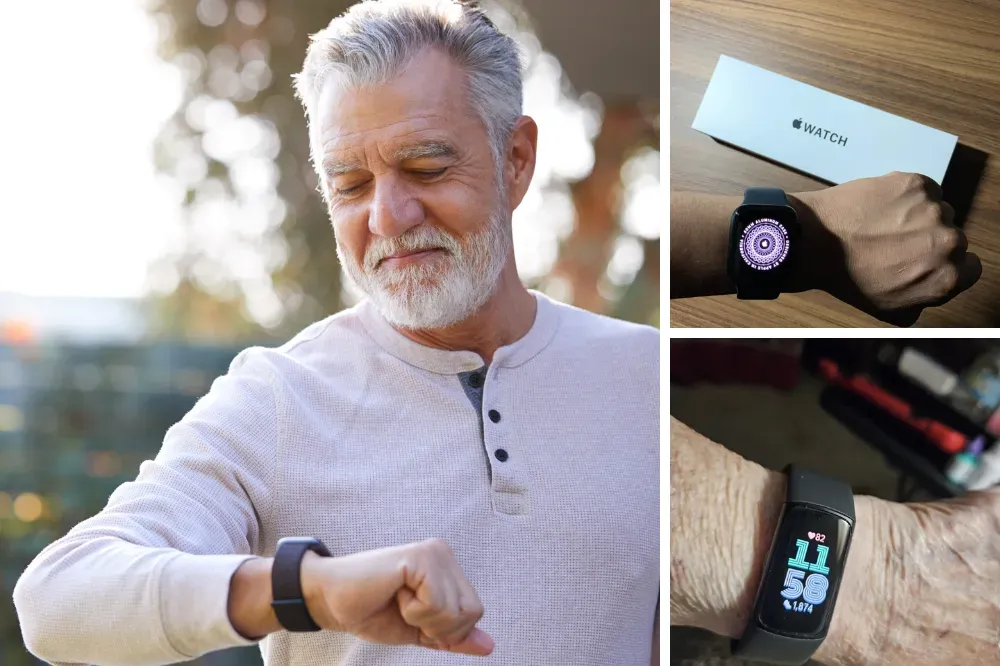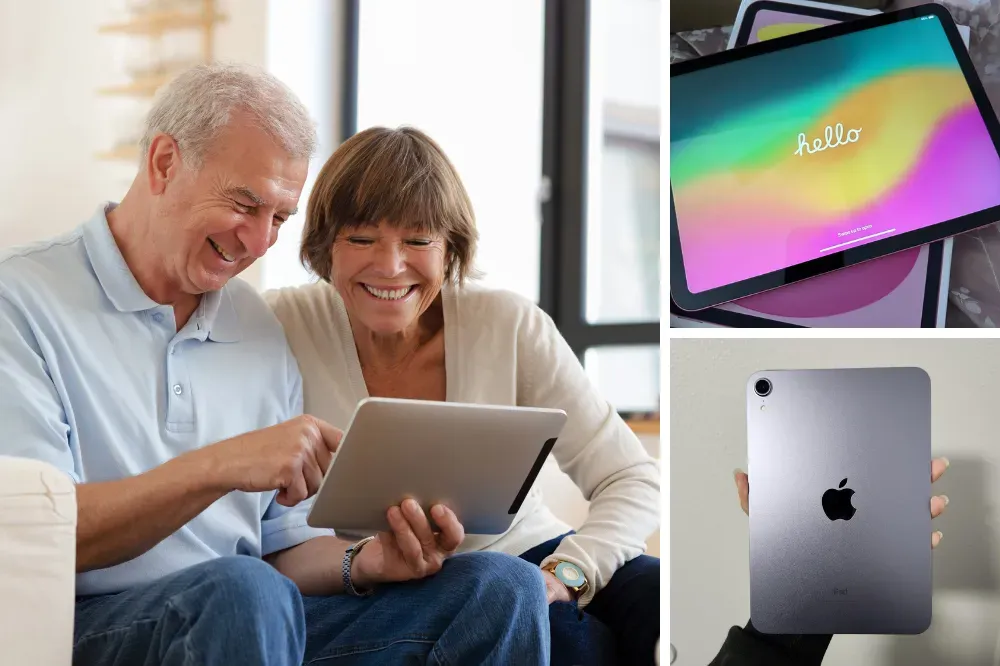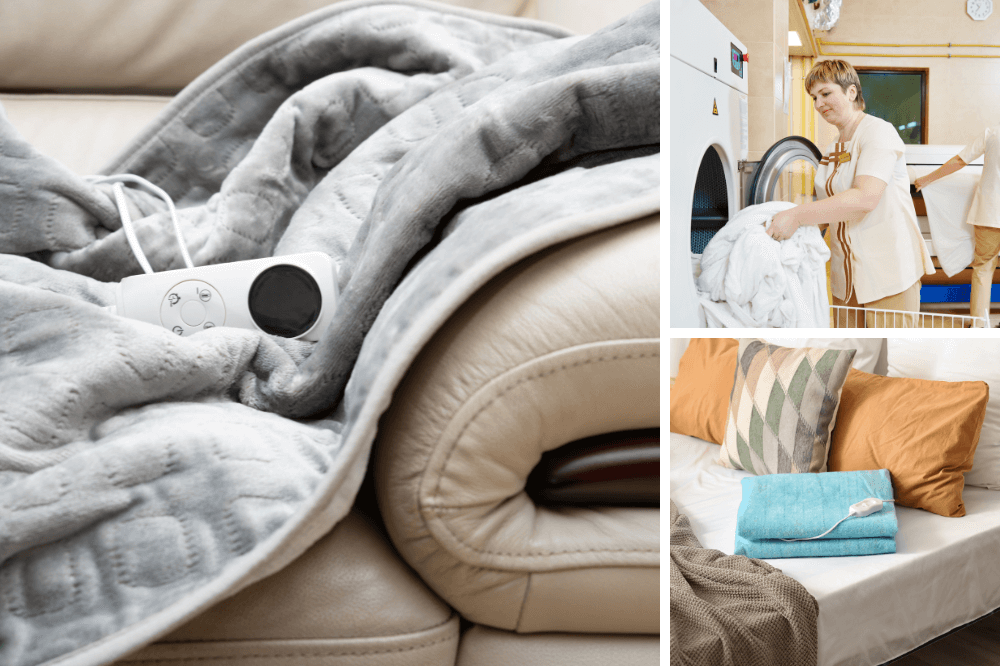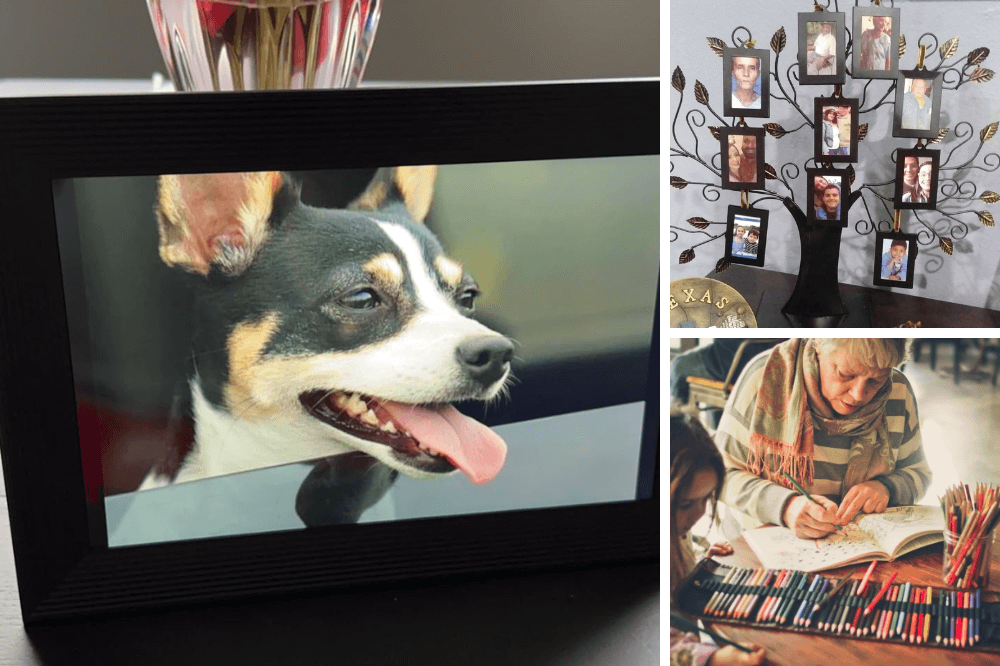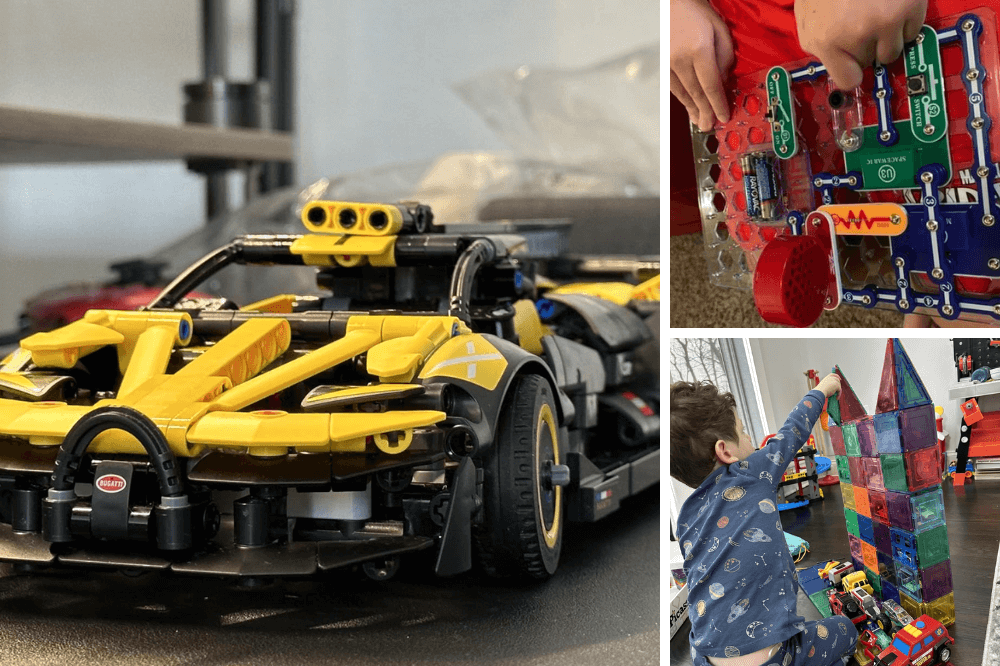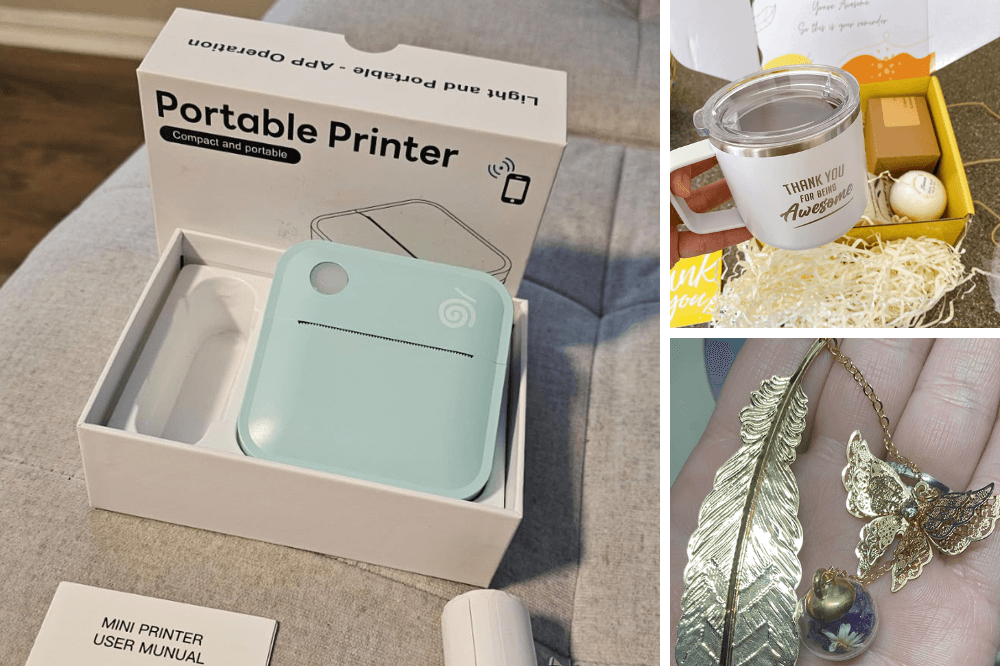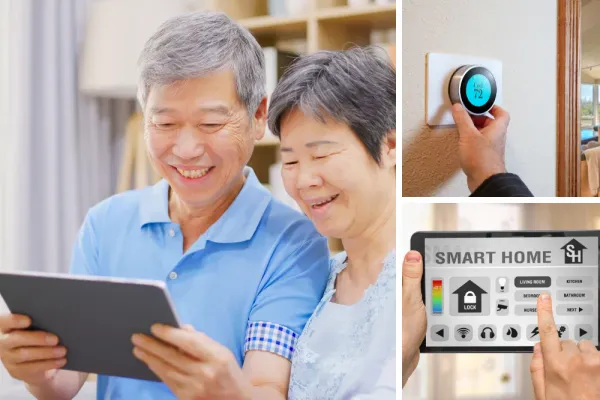As the global population ages, the demand for assistive technology for the elderly continues to grow. These devices play a crucial role in enhancing the daily lives of older people, helping them maintain independence, improve safety, and manage various health conditions. From hearing aids and personal alarms to adaptive keyboards, assistive technologies cater to a wide range of needs, providing vital support in daily activities. A vast majority of seniors find these technologies easy to use and highly beneficial in their daily lives. This article explores some of the most important assistive devices available for seniors, highlighting their benefits and applications.

1. Magnifiers for Visual Impairments
Visual impairments, such as macular degeneration and cataracts, are common among older adults and can significantly affect daily life. Magnifiers are simple yet effective assistive devices that help seniors with reduced vision. These tools range from handheld magnifiers to desktop models with built-in lighting and adjustable magnification levels. Magnifiers can be used for reading, viewing photos, or engaging in hobbies, making them essential for maintaining quality of life and independence.

2. Hearing Aids for Hearing Loss
Hearing loss is another prevalent issue among the elderly, impacting communication and social interaction. Hearing aids are essential assistive device technology that amplifies sound, making it easier for seniors to hear and participate in conversations. Modern hearing aids come in various designs, including behind-the-ear, in-the-ear, and completely in-canal models. They often feature advanced technologies like noise reduction, wireless connectivity, and Bluetooth compatibility, enabling seniors to connect to phones and other electronic devices seamlessly.
Most users report significant improvements in their hearing and overall quality of life with modern hearing aids.
3. Adaptive Keyboards for Fine Motor Impairment
For seniors with fine motor impairments or arthritis, using standard keyboards can be challenging. Adaptive keyboards are specially designed to accommodate these needs, featuring larger keys, customizable layouts, and ergonomic designs. These keyboards are particularly beneficial for the older adult who relies on computers for communication, work, or leisure activities. Adaptive keyboards help seniors stay connected and engaged in the digital world by reducing strain on fingers and wrists.
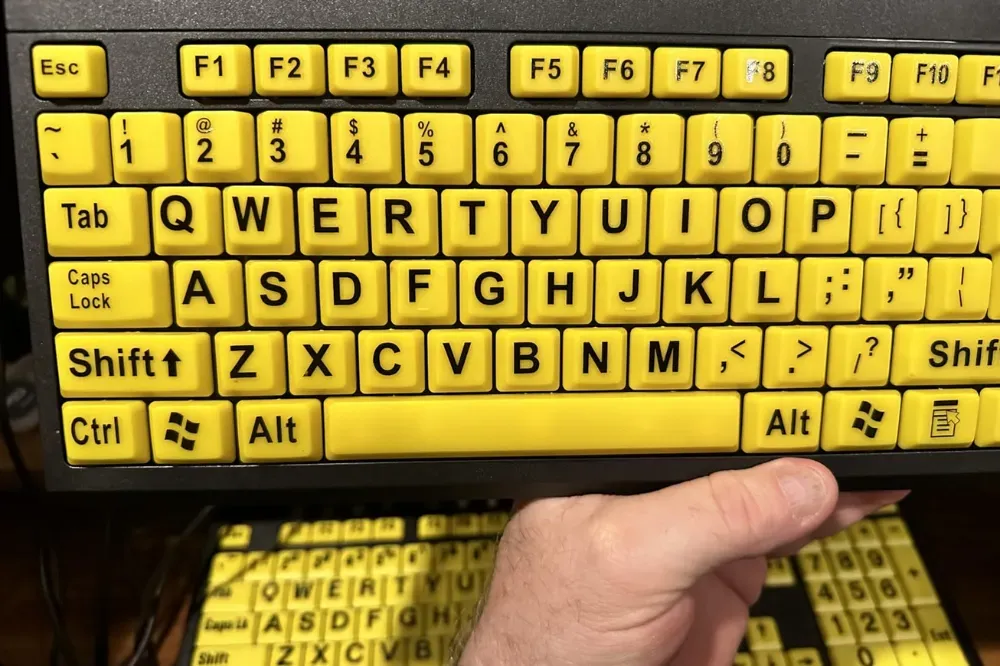
4. Medical Alert Systems for Safety and Emergency Response
Medical alert systems are crucial assistive devices for elderly people, providing peace of mind to both users and their family members. However, frail older adults face specific needs and challenges that many assistive technologies do not adequately address, due to their vulnerabilities. These systems typically include a wearable device with a button that can be pressed in case of an emergency. Advanced models may also offer automatic fall detection, GPS tracking, and voice-activated communication with emergency services. Medical alert systems are especially valuable for seniors living alone or those with chronic conditions, as they ensure quick access to help when needed. A vast majority of users find these systems to be reliable and easy to use, providing them with peace of mind.
5. Assistive Devices for Daily Living Aids
Many devices are available to support daily living activities for older adults, particularly those with mobility or dexterity challenges. Examples include:
- Grab Bars and Shower Chairs: These devices help older adults navigate the bathroom safely, reducing the risk of falls.
- Button Hooks and Zipper Pulls: These small tools assist with dressing, making it easier for those with limited dexterity to fasten clothing.
- Pill Dispensers: Automatic pill dispensers help manage medication schedules, ensuring that older adults take their medications correctly and on time.

6. Voice-Activated Assistants for Home Automation
Voice-activated assistants like Amazon's Alexa and Google Assistant have become popular in assisting seniors with limited mobility or visual impairments. These devices can control smart home technology, such as lighting, thermostats, and smart doorbells, allowing seniors to manage their environment with simple voice commands. They also provide access to news updates, music, and other services, enhancing daily life and promoting social interaction. A vast majority of users find these voice-activated assistants to be highly effective and easy to use.
7. Mobility Aids for Enhanced Independence
Mobility aids, including walkers, canes, and mobility scooters, are essential for seniors with physical challenges. These devices help bridge gaps by aiding seniors in overcoming challenges related to mobility and daily activities. These devices help the older adult move around safely and independently, whether at home or in the community. By providing support and stability, mobility aids reduce the risk of falls and increase the ability to perform daily activities.
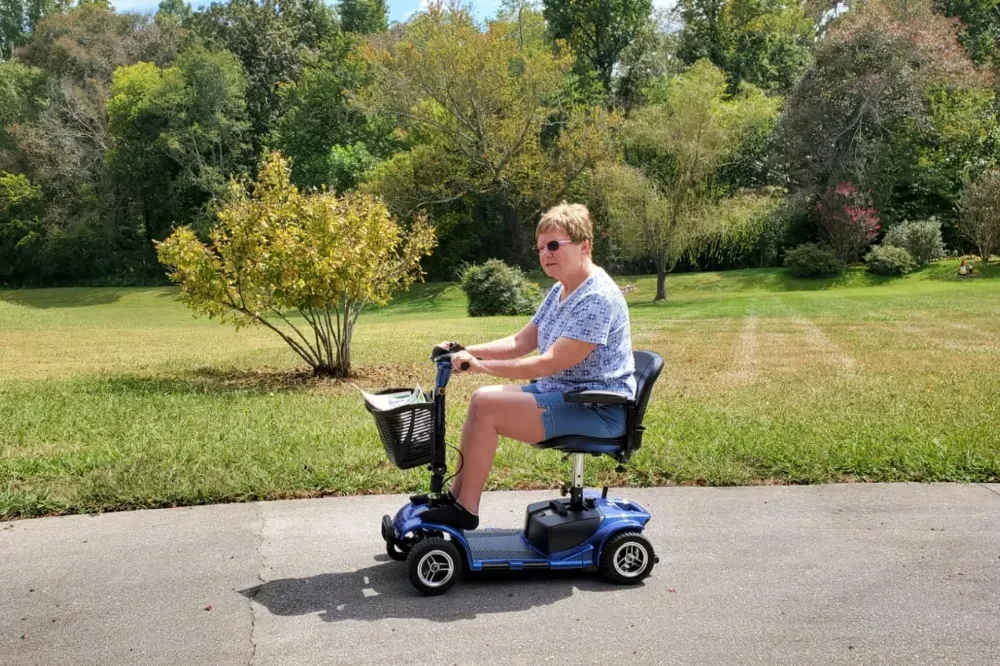
Benefits of Assistive Technology for Seniors
- Improved Safety: Assistive devices, such as medical alert systems and mobility aids, help prevent accidents and provide immediate assistance in emergencies. These devices address the specific needs of an elderly person, promoting their independence and wellbeing by reducing isolation, providing emergency support, and enhancing everyday tasks. A vast majority of users report feeling safer and more independent with the use of these devices.
- Increased Independence: Technologies like adaptive keyboards and voice-activated assistants enable seniors to manage daily tasks more effectively, fostering independence. A systematic review highlights the importance of comprehensive analyses of research assessing the effectiveness of these assistive technologies for older adults.
- Enhanced Quality of Life: By bridging gaps in physical abilities, assistive technology allows older adults to engage in activities they enjoy, stay connected with loved ones, and maintain a sense of purpose. Randomized controlled trials provide high-quality evidence to assess the impacts of these technologies on factors such as autonomy, communication, and safety among frail and non-frail older populations.
- Support for Caregivers: Assistive devices not only benefit seniors but also provide peace of mind to family members and caregivers, who know that their loved ones have access to tools that enhance safety and wellbeing.
The Role of Occupational Therapists
An occupational therapist can be invaluable in helping seniors choose and use assistive technology devices effectively. They assess an individual's specific needs and recommend appropriate tools to enhance daily living and maintain cognitive function. Occupational therapists also provide training and support to ensure that seniors and their caregivers can use these devices safely and confidently.
Conclusion
Assistive technology for seniors plays a vital role in supporting the health, safety, and independence of the older adult. Whether through simple tools like magnifiers and hearing aids or more advanced systems like medical alerts and adaptive keyboards, these technologies offer significant benefits for an older person. As the aging population continues to grow, the development and adoption of assistive devices will be crucial in ensuring that seniors can live independently and enjoy a high quality of life.

